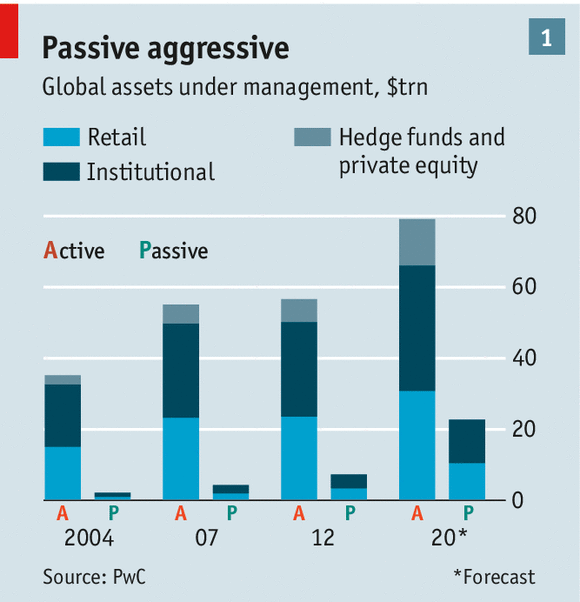Investment Funds – Active v Passive Management Juno Wealth Management
Post on: 16 Март, 2015 No Comment

If you want to put your money into an Investment Fund, there are two main strategies you will come across:
- Actively managed investment funds, which are run by professional fund managers or investment research teams who make all the investment decisions, such as which companies to invest in or when to buy and sell different assets, on your behalf.
- Passive investment funds will simply track a market, but will charge far less in fees. The funds are essentially run by computer and will buy all of the assets in a particular market, or the majority, to give you a return that reflects how the market is performing.
Your choice of actively managed funds heavily outweighs passive funds. There are over 2,000 actively managed funds but fewer than 100 passive funds listed by the Investment Management Association.

Active fund managers have extensive access to research in different markets and sectors and often meet with companies to analyse and assess their prospects before making a decision to invest. The aim with active management is to deliver a return that is superior to the market as a whole or, for funds with more conservative investment strategies, to protect capital and lose less value if markets fall. An actively managed fund can offer you the potential for much higher returns than a market provides – if your fund manager makes the right calls! It also means that you have somebody tactically managing your money, so when a particular sector looks like it might be on the up, or one region starts to suffer, the fund manager can move your money accordingly to expose you to this growth or shield you from potential losses.
However there is a problem – not many active fund managers manage to consistently outperform the markets they aspire to beat. For example, analysis of the UK All Companies sector at the end of 2010 showed that only 24% of actively managed funds managed to beat the benchmark stock market (the FTSE All Share) over the previous decade. Essentially, there’s a strong chance you could end up with a fund that is not delivering you the return you could get by simply tracking the index with a passive fund.
One of the biggest drags on gaining from active fund performance is cost. For the privilege of getting an expert fund manager, you have to pay much higher fees than you would with a passive investment fund. The typical ongoing charge figure for an actively managed fund is 0.85%, rising to 1% in many cases; in contrast, passive funds can be held for as little as 0.1%. So, a fund manager has to deliver an extra 0.75% or more in annual return, as well as beating their benchmark index (the market that acts as a comparison for performance) in order to prove their value. Consumer bodies such as Which? suggest that this can prove too challenging for most managers over the long term, and in almost all cases, you still have to pay an annual fee even if your fund underperforms its benchmark. You might view this as acceptable if your fund returns 7% in comparison to 7.5% from the stock market, but what if it loses money? A loss of 2% could be increased to 3% and you’d have no choice but to pay it.
If you or your adviser pick the right actively managed fund, or include actively managed funds sensibly within your portfolio, you could make much more money than you would with a Tracker Fund. There are some very skilled managers who have built up reputations of consistent high returns and can be worth the fees that you will pay for them. Indeed, your investment needs and goals might require you to achieve higher returns and a good active manager can, potentially, help you achieve these. However, with such an abundance of actively managed funds out there, knowing who will perform in the future can be tricky.
Some areas of investment are much better suited to active rather than passive management. Property funds, for example, buy commercial properties and pay returns based on rental income and increases in capital value of the properties. A tracker fund simply cannot do this and it may be valuable to invest in an actively managed property fund. An active manager might also be useful in more specialised areas, like technology, healthcare, smaller companies or emerging markets, where expert knowledge can help to seek out value.
Sorry, comments are closed for this post.














